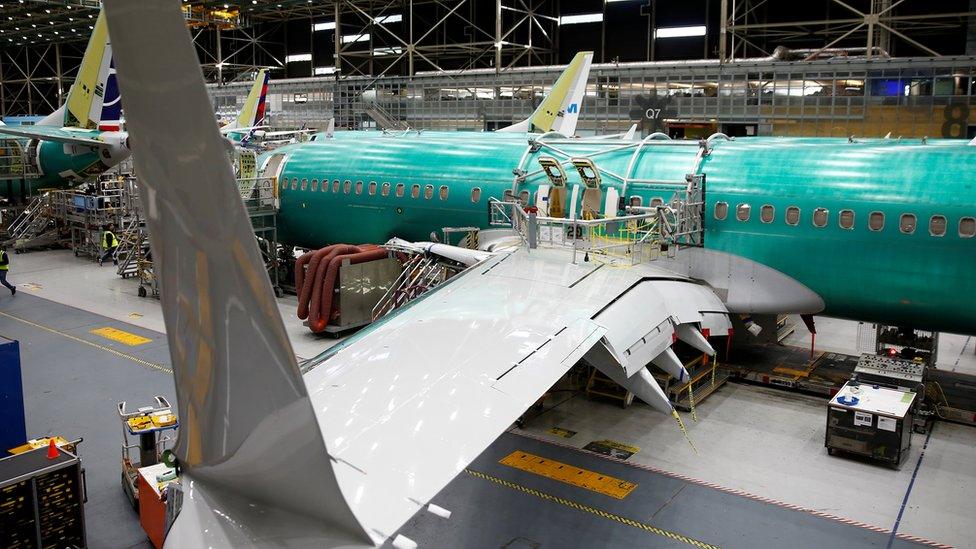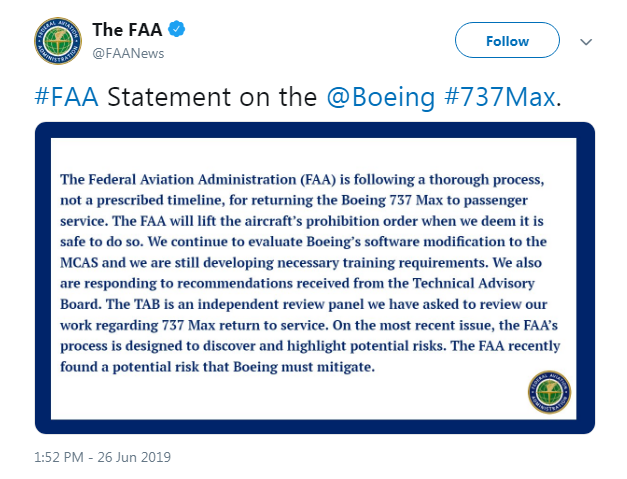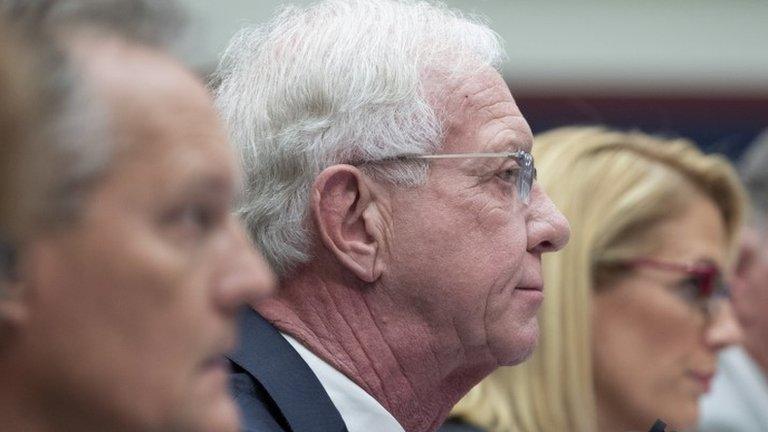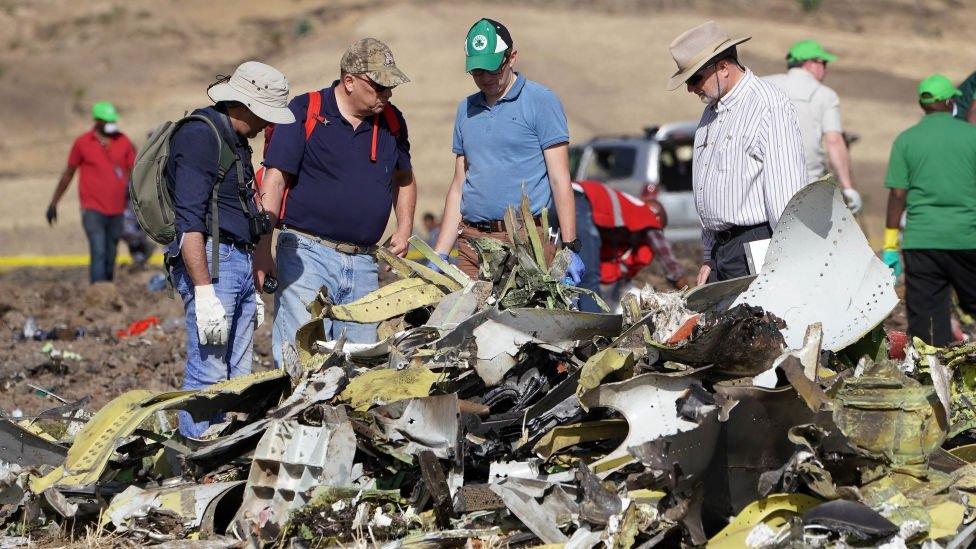Boeing 737 Max: New issue could delay aircraft's return
- Published

US regulators have uncovered a possible new flaw in Boeing's troubled 737 Max aircraft that is likely to push back test flights.
The Federal Aviation Administration (FAA) said it had identified the "potential risk" during simulator tests, but did not reveal details.
Boeing's top-selling aircraft was grounded in March after two crashes.
The company is upgrading the aircraft's flight control system, which is the focus of crash investigators.
The control system can help prevent a plane from stalling.
In a tweet, the FAA said: "On the most recent issue, the FAA's process is designed to discover and highlight potential risks. The FAA recently found a potential risk that Boeing must mitigate."
A source familiar with the situation told the BBC: ""During simulator testing last week at Boeing, FAA test pilots discovered an issue that affected their ability to quickly and easily follow the required recovery procedures for runaway stabiliser trim (ie, to stop stabilisers on the aircraft's tail moving uncontrollably).
"The issue was traced to how data is being processed by the flight computer."
Last month, the FAA indicated that approval of Boeing's changes to the 737 Max could come in late June. That would have allowed test flights in early July.
There were initial hopes among airlines that the 737 Max would be back in the air during the summer, but that timetable was pushed back to late this year even before the latest news.

Reuters, which first reported the new issue, said during an FAA pilot simulation in which the software was activated, it had taken longer than expected to recover the aircraft.
Other sources said the problem was linked to the aircraft's computing power and whether the processor possessed enough capacity to keep up.
Boeing said "we are working closely with the FAA to safely return the Max to service" and that it believed a software fix would address the problem.
But the FAA will be looking into whether it is a hardware issue.
Boeing chief Dennis Muilenburg: "We apologise to the families"
If regulators are unsatisfied with the software fix, the microprocessor unit will have to be replaced and the grounding may stretch on for months longer than previously thought.
The loss of Ethiopian flight ET302 in March was the second fatal accident involving a 737 Max in the space of five months. A near identical aircraft, owned by the Indonesian carrier Lion Air, went down in the sea off Jakarta in October 2018.

Analysis
Theo Leggett, business correspondent
The news that the FAA has found a "potential risk" in software developed for the 737 Max should come as no surprise.
Firstly, fixing the plane is clearly not a simple process. Boeing has been working on the issue for the past eight months - and if a quick and easy solution had been available, perhaps the second of the two accidents could have been avoided.
Meanwhile, the regulator itself is under intense pressure and its credibility is at stake. Its own actions certifying the aircraft and its relationship with Boeing have come under fierce scrutiny.
In deciding whether the aircraft is safe to fly again, it needs to be absolutely rigorous - and needs to be seen to be rigorous as well.
There's a great deal at stake here. The longer the 737 Max remains grounded, the more the costs will mount up, for Boeing and for the airlines which were counting on using the new plane.
But 346 lives have already been lost, and no-one - not Boeing, not the airlines and not the regulator - can afford another accident.

Preliminary reports into both accidents have suggested they were triggered by a flight control system deploying at the wrong time, due to a faulty sensor.
The FAA has been criticised for its lack of oversight and the certification process that cleared the Max to fly.
Earlier this month, Capt Chesley Sullenberger, whose landing of a crippled aircraft on New York's Hudson River was turned into a Hollywood film, told a Congressional hearing into the 737 Max that the "crashes are demonstrable evidence that our current system of design and certification has failed us".
Restoring confidence
Airlines, regulatory authorities and equipment makers met in Montreal on Wednesday to discuss the Boeing 737 Max situation, a gathering organised by industry trade group the International Air Transport Association (IATA).
Following the meeting, IATA director general Alexandre de Juniac said: "The Boeing 737 Max tragedies weigh heavily on an industry that holds safety as its top priority.
"We trust the Federal Aviation Administration, in its role as the certifying regulator, to ensure the aircraft's safe return to service. And we respect the duty of regulators around the world to make independent decisions on FAA's recommendations.
"At the same time, aviation is a globally integrated system that relies on global standards, including mutual recognition, trust, and reciprocity among safety regulators.
"Aviation cannot function efficiently without this co-ordinated effort, and restoring public confidence demands it."
- Published19 June 2019

- Published3 June 2019

- Published17 June 2019
